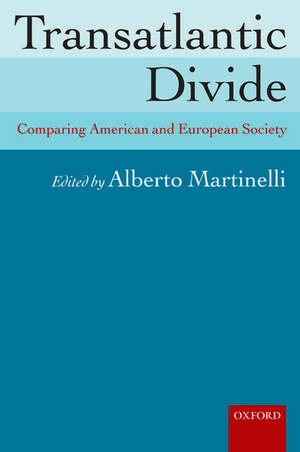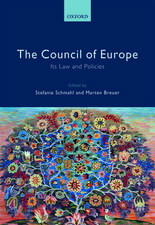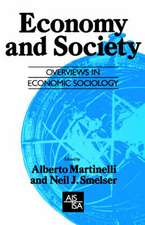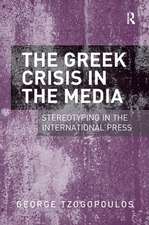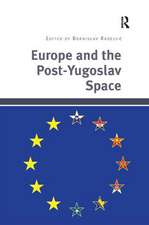Transatlantic Divide: Comparing American and European Society
Editat de Alberto Martinellien Limba Engleză Hardback – 8 noi 2007
| Toate formatele și edițiile | Preț | Express |
|---|---|---|
| Paperback (1) | 276.64 lei 32-37 zile | |
| OUP OXFORD – 8 noi 2007 | 276.64 lei 32-37 zile | |
| Hardback (1) | 148.81 lei 6-8 săpt. | |
| OUP OXFORD – 8 noi 2007 | 148.81 lei 6-8 săpt. |
Preț: 148.81 lei
Nou
Puncte Express: 223
Preț estimativ în valută:
28.47€ • 29.89$ • 23.63£
28.47€ • 29.89$ • 23.63£
Carte tipărită la comandă
Livrare economică 10-24 aprilie
Preluare comenzi: 021 569.72.76
Specificații
ISBN-13: 9780199204526
ISBN-10: 0199204527
Pagini: 368
Ilustrații: graphs, figures and tables
Dimensiuni: 163 x 241 x 26 mm
Greutate: 0.7 kg
Editura: OUP OXFORD
Colecția OUP Oxford
Locul publicării:Oxford, United Kingdom
ISBN-10: 0199204527
Pagini: 368
Ilustrații: graphs, figures and tables
Dimensiuni: 163 x 241 x 26 mm
Greutate: 0.7 kg
Editura: OUP OXFORD
Colecția OUP Oxford
Locul publicării:Oxford, United Kingdom
Notă biografică
Alberto Martinelli is Professor of Political Science and Sociology, University of Milan, where ince 1969 he has taught Economic Sociology, Political Science and Global Politics. Between 1987 and 1999 he has been Dean of the Faculty of Political Sciences of the University of Milan. For almost 40 years he has been very active in teaching, pure and applied research, publishing, international scientific cooperation, and government consulting. At present, he is President of the Degree course in Political Sciences and of the Master course in Comparative Institutions and Politics.
